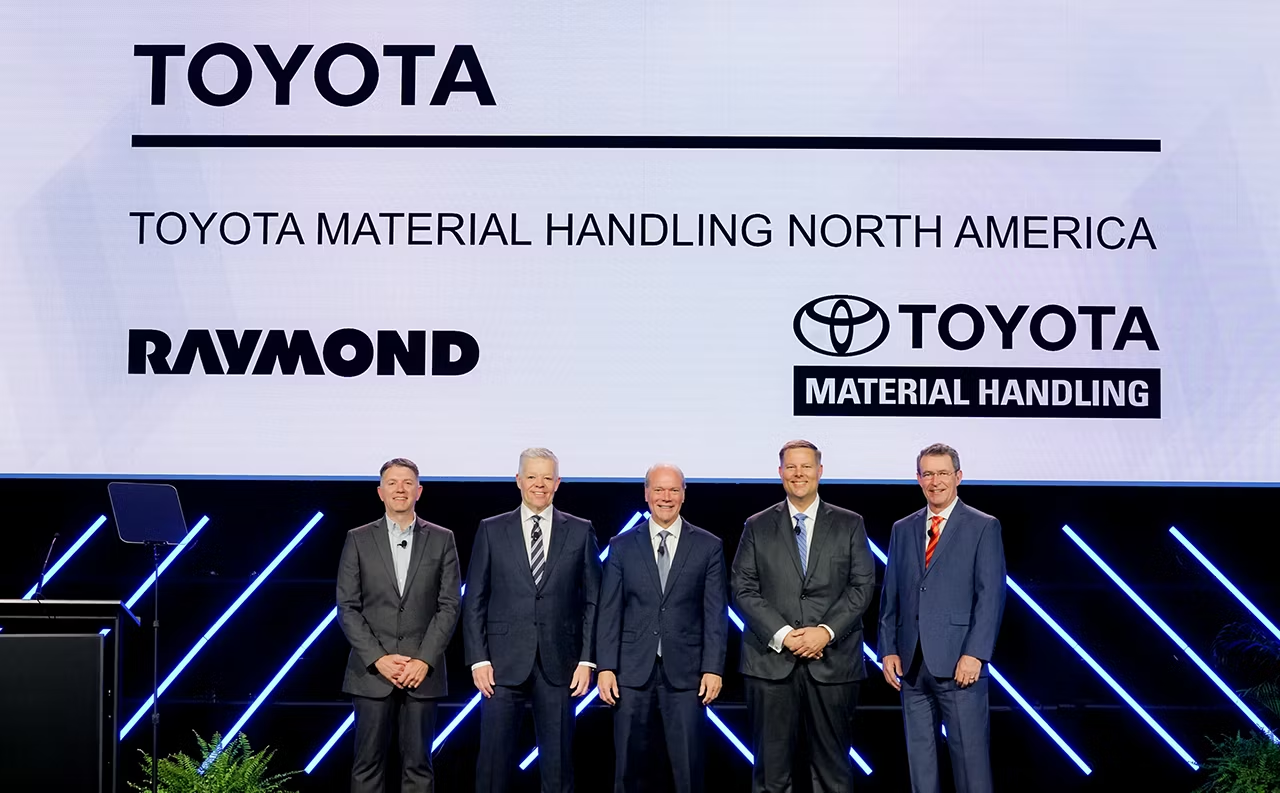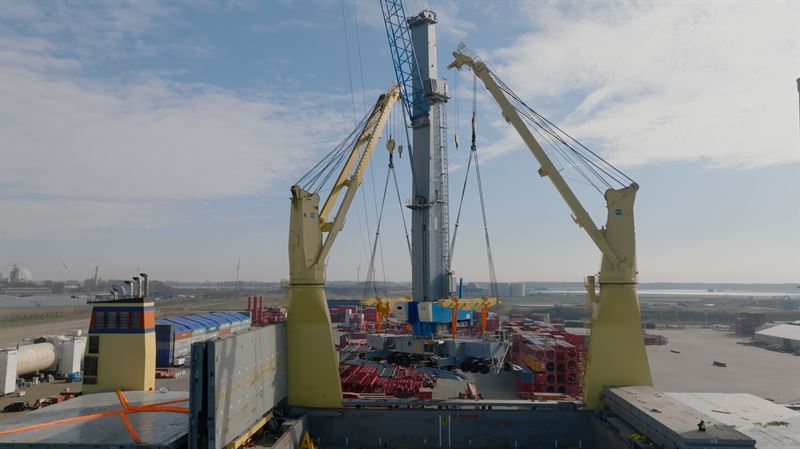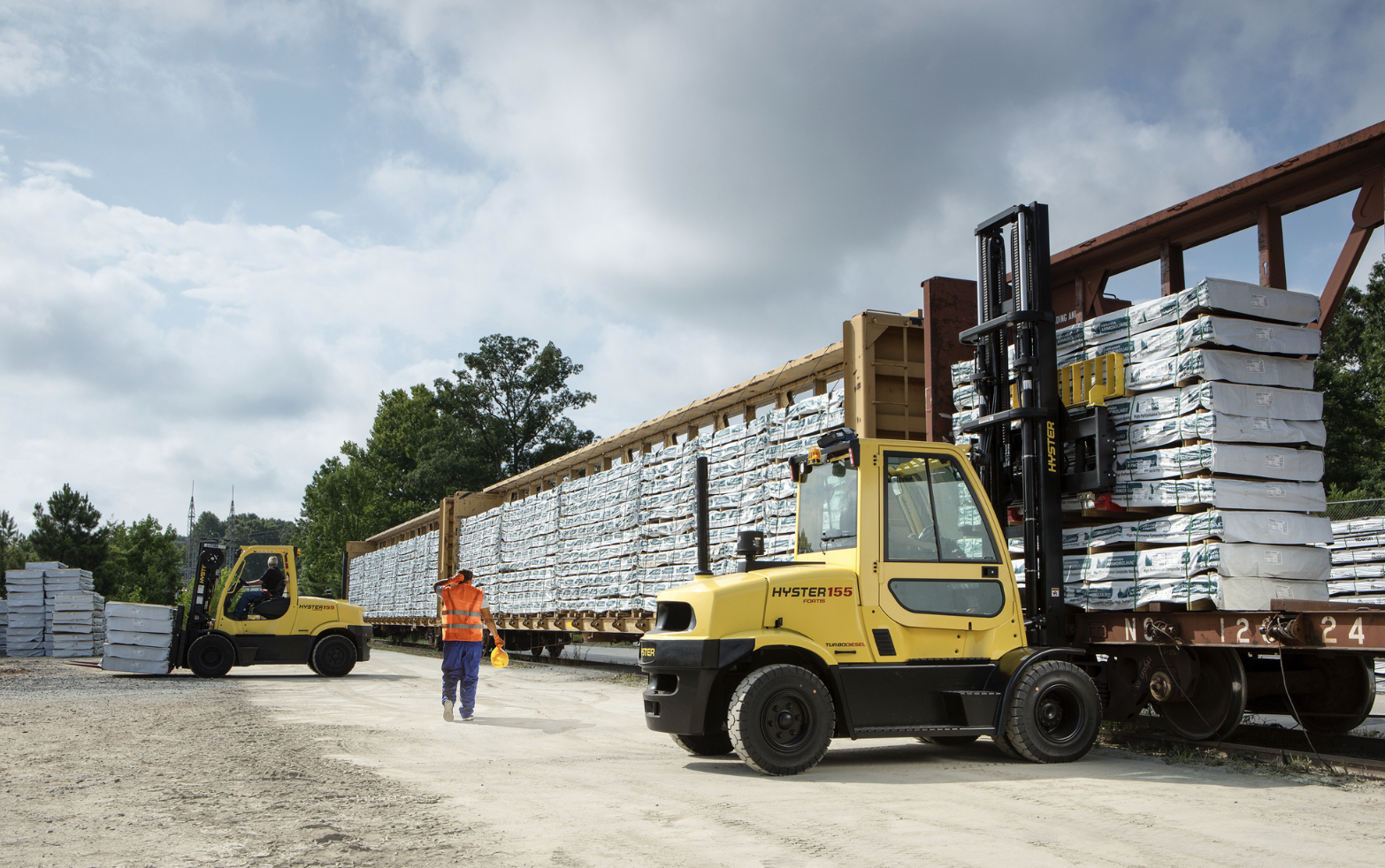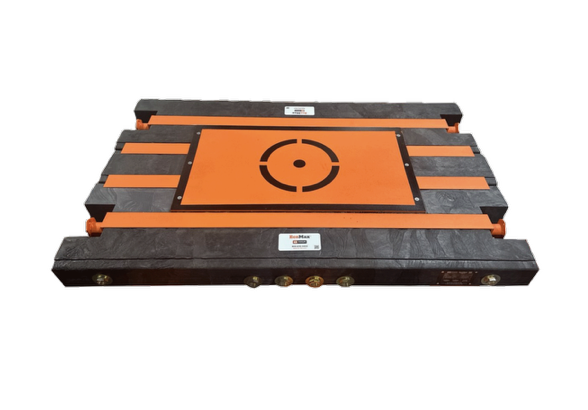Construction Completed at Blue Grass Chemical Agent-Destruction Pilot Plant in Kentucky
Bechtel, with its partners and the U.S. Department of Defense, has completed construction of a key plant that will destroy the last remaining stockpile of the nation’s chemical weapons.
The Blue Grass Chemical Agent-Destruction Pilot Plant in Richmond, Kentucky, will now enter a multi-year testing phase where all systems are checked and simulated chemical weapons are taken apart and emptied.
Once running, the plant will use a new approach to destroy the nerve agents GB (Sarin) and VX. As an alternative to incineration, the plant will use chemicals to neutralize the agents, followed by supercritical water oxidation—where superheated water and high pressure are used to break down the hazardous chemicals into non-hazardous ingredients.
“This is such an important facility from a global safety and security perspective,” said Craig Albert, president of Bechtel’s nuclear, security and environmental business unit. “This is an important achievement but there’s more work to do, and we look forward to the day when the plant starts actual operations.”
The plant will help safely eliminate the remaining 10% of the nation’s decades-old chemical weapons stockpile under the Chemical Weapons Convention, a 1997 treaty signed by 190 countries. Built under contract to the Department of Defense’s Program Executive Office, Assembled Chemical Weapons Alternatives, the plant will destroy 523 tons of mustard and nerve agent in rockets and artillery shells stored at the Blue Grass Army Depot.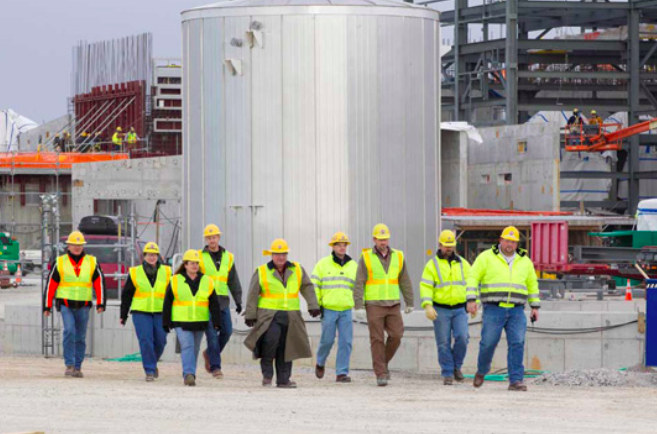
Bechtel Parsons Blue Grass is a joint venture of Bechtel National Inc. and Parsons Government Services Inc.
“As impressive as the facility itself is the success of our safety culture here at Blue Grass,” said Doug Omichinski, Bechtel Parsons Blue Grass project manager. “We have been able to instill and maintain a safety mentality throughout the entire construction process.”
To date, employees have completed 5,037,710 hours and 518 days without a lost time accident and a recordable injury rate 94% lower than construction industry average.
While the main plant continues systemization, construction of the Explosive Destruction Technology facility responsible for processing weapons containing mustard agent will carry on until early 2017.
Bechtel is leading the team completing a sister plant in Pueblo, Colorado that will destroy mustard agent. That plant is now approaching the end of its testing phase. The chemical weapons disassembly and destruction plants are two projects in Bechtel’s diverse government portfolio that includes site management and operations, environmental restoration, defense, space, energy, and global security.


